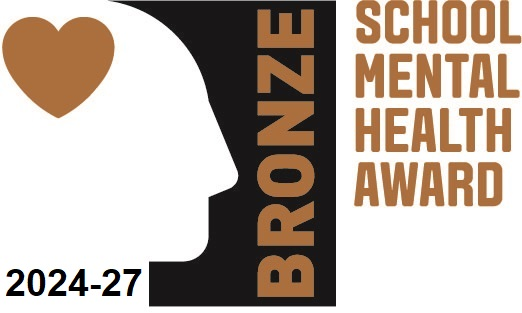SOCIOLOGY
Please click on the links below:
What is Sociology about?
Sociology is a study of society and human interactions. It is a social science that attempts to understand the world we live in through investigation and critical analysis. Sociologists strive to examine and understand human activities such as: culture, education, politics, religion, law, sport, media, and crime and deviance. Studying A-level Sociology will help students learn how to complete their work independently and carry out research investigations. It also develops critical thinking skills, research-based mind-set and curiosity about how society works.
What do we teach in Sociology and why?
The main goal of Sociology is to explain human actions within the group and their interactions with different groups and institutions. It is the subject that also serves communities by investigating local and global social problems and applying research results to try to deal with those problems. The role of sociological theory of society is to advise experts and politicians and help to raise the quality of life, promote healthy lifestyles, tackle gang activity and crime, and highlight the plight of people from deprived areas. For the individual, Sociology provides skills, an access to more objective enquiries and reinforces the importance of education.
A-level students learn, practice and master knowledge, skills and research procedures in several key modules as outlined by AQA examination board. Mastering theoretical approaches and research procedures allow students to develop sociological mind-set and enquiry-based behaviour. This provides foundations for application of knowledge to real-world scenarios as well as awareness of how to maintain and improve well-being of entire groups of people
Core knowledge enables students to access topics in modules, application section deepens their understanding and evaluation section challenges students to analyse and exercise higher order reasoning. Curriculum is embedded in sequential investigation framework which allow students to revisit previous topics on a regular basis. Long-term and medium-term teaching plans of teachers are synchronised, allowing students orderly and structured curricular experience.
Each module is divided into several sections, based on main theoretical approaches, research investigations, themes and real-world application, followed by consolidation through deepening and mastering, as well as through assessment, reflection and improvement cycles. Content is reinforced through planned rehearsal, retrieval and home learning that have been designed to accommodate needs of individual students, groups of students, as well as provide stretch-and-challenge activities.
| Paper 1 modules | Paper 2 modules | Paper 3 modules |
| Education Research Methods |
Family and households Media |
Crime and Deviance Theories and Methods |
Social Sciences department thrive on developing next generation of academically capable and responsible citizens. In turn, A-level students are prepared to function in modern British society by being equipped with knowledge, tools and experience from sociological curriculum.
What does the Sociology enable our students to do?
Sociology curriculum aims to develop a wide range of academic, behavioural and transferable skills:
- demonstrate knowledge and understanding of main concepts, theories, studies and research methods
- apply sociological knowledge and understanding of content in a range of contexts and scenarios
- develop timed writing skills, effective note-taking, use layered writing scaffolding and Tier 2 and 3 vocabularies
- analyse, interpret and evaluate sociological concepts, theories, research studies, methods and ethical issues
- develop research skills and range of mathematical skills to be able to interpret and make sense out of data
- use model answers effectively and enhance coping with stress and timed writing in extended assessment
- develop independent study, revision and exam skills
- retrieve content, reflect on it and improve performance
- use multiple opening phrases, diverse connectives and social sciences jargon
- use mark scheme effectively and apply it to assess extended writing answers
- enhance cultural capital through access to modern debates, discoveries and exploring the power of knowledge
- compare main sociological approaches and assess their validity and effectiveness in relation to methodology, issues & debates and levels of explanation
How is the curriculum structured in Sociology?
Sociology curriculum in Key Stage 5 relies on prior knowledge, skills and behaviours students develop during earlier stages of education, especially in English and Maths, which create basis for A-level Sociology curriculum. In Key Stage 5 we offer 5 lessons each week, with each class being allocated 2 teachers who specialise in modules and topics. Students benefit from different teachers with diverse style of teaching and interaction.
What specifications do we use?
A-LEVEL: AQA 7192
What are the links between Sociology and other subjects?
Due to society-oriented nature of the course, we recommend that students have a reasonable grasp of Maths, English and Citizenship. Sociology blends in well with most other A-level subjects including English and Maths, natural sciences Biology and Chemistry, as well as other social sciences, History and Politics, as well as Arts.
What are the future careers students can take when they study Sociology?
Sociology provides a foundation for diverse employment opportunities. It is particularly valuable for those students considering a career in: education, teaching, research, national statistics, criminology, social work, social care, workplace productivity, consumer research, advertising, family adoption, youth deviance, politics and more.
What extra-curricular activities can students take part when you study Sociology?
Our students are offered a variety of extra-curricular opportunities, which consist of visits to numerous establishments, such as Science Museum, NHS hospital, Natural History Museum, Welcome Collection Trust, UCL Galleries, Imperial War Museum, Bethlem Museum, London Museum and Institute of Contemporary Arts. Furthermore, we invite guest lecturers who provide our students insights into modern academic trends and research in sociology and related career fields.








